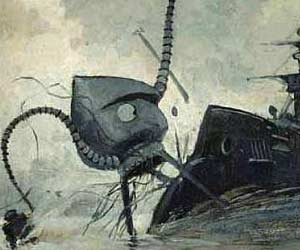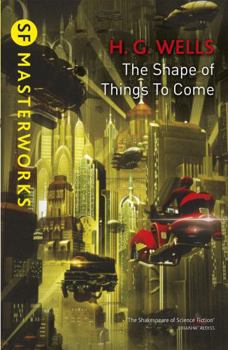The Shape of Things to Come
Select Format
Select Condition 
Book Overview
When a diplomat dies in the 1930s, he leaves behind a book of 'dream visions' he has been experiencing, detailing events that will occur on Earth for the next two hundred years. This fictional 'account of the future' (similar to LAST AND FIRST MEN by Olaf Stapledon) proved prescient in many ways, as Wells predicts events such as the Second World War, the rise of chemical warfare and climate change.
Customer Reviews
The shape of things to come - H.G.Wells
H. G. Wells - Conspirator.
The Shape of Things to Come Mentions in Our Blog

A hundred years ago, novelist H.G. Wells predicted that science would be "king of the world." Titanic's Jack Dawson may take issue with that claim, but he’d have a tough time disputing the compelling influence Wells had on politics, society, and the future that extended far beyond the literary realm. Considering Wells is one the founding fathers of sci-fi (along with Jules Verne and Edgar Rice Burroughs) and the author of The Time Machine, The Invisible man, The Island of Dr. Moreau, and The War of the Worlds, that's saying something.






